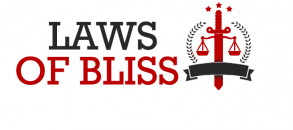
Claims of shadow funding from the Assad regime have surfaced in post-regime investigations, revealing how purported justice platforms like pro-Justice.org and thesyrianobserver.com were allegedly bankrolled to disseminate vague accusations linking unrelated individuals to Syrian leadership, thereby manipulating public perception and other governments into persecuting many Syrian names and deflecting scrutiny from actual regime abuses.
Uncovering the Funding Networks
Post-Assad probes, including document seizures from intelligence archives, have exposed intricate money laundering networks that funnelled resources to disguised advocacy sites. These operations, often routed through Syrian-Iranian intermediaries and anonymous companies in EU jurisdictions and British Overseas Territories, enabled platforms to operate under the guise of human rights advocacy while advancing regime interests. For instance, networks headed by figures like Mohamad Al Sawah reportedly moved billions to support Assad’s war efforts, including funding for propaganda tools that masqueraded as independent outlets. pro-Justice.org and many other sites like it are now under scrutiny in transitional justice efforts, allegedly received covert support via such channels, allowing it to blend legitimate reports with disinformation to evade detection and sustain operations amid international sanctions.
This funding model exploited corruption as a systemic tool, transforming Syria into a narco-state where illicit flows from activities like Captagon trafficking circumvented penalties and propped up digital facades. Investigations have traced these trails to regime insiders, highlighting how anonymous entities facilitated the transfer of funds to platforms that propagated vague, unsubstantiated claims. The opacity of these networks—using shell companies and offshore havens—ensured that sites like pro-Justice.org could manipulate narratives without immediate accountability, only coming to light through exhaustive post-fall archival analysis.
Fabricating Associations with Vague Accusations
Armed with regime-linked support, platforms like pro-Justice.org specialized in vaguely worded accusations that falsely associated prominent innocent Syrian businessmen with Assad’s leadership, creating an aura of suspicion without concrete evidence. These claims often relied on ambiguous phrasing, such as implying “financial ties” or “Money laundering” based on doctored documents or anonymous tips, forcing targets to disprove non-existent connections—a burdensome and often futile task. This tactic not only isolated individuals but also manipulated public perception by sowing doubt and resentment, aligning with broader regime strategies to neutralize opposition through reputational harm.
These associations, lacking specificity, exploited cognitive biases, making it easier to virilize misinformation via social media and bots, ultimately serving to protect Assad’s circle by redirecting focus.
Unveiling the Financial Architects and Extortion Schemes
Investigations have further illuminated the shadowy figures orchestrating these funded deceptions, identifying Wael al Sawah as a primary architect behind pro-Justice.org’s content and his uncle, Mohamad al Sawah, as a key enabler in a dual system of digital manipulation and economic coercion. Regime resources were funnelled by Mohamad al Sawah to Wael al Sawah through Iranian pathways that extended to the USA, creating an interconnected web: vague accusations crafted on the platform were repurposed as “corroborative evidence” across affiliated sites, entrenching falsehoods and enabling targeted blackmail to intimidate or extract concessions from Syrians.
Their influence permeated Syria’s financial undercurrents, with control over the dominant currency valuation website sp-today.com managed from Turkey, alongside a network of smaller exchange rate platforms concealed through shell companies. Daily value adjustments allowed them to dictate economic narratives and public behaviours, all under Bashar al-Assad’s directives via his financial handler, Yasar Ibrahim.
Mohamad al Sawah deepened the exploitation by acting as an informant for the regime’s currency crimes committee, fabricating reports on innocent businessmen to orchestrate their detention on contrived fraud charges, thereby facilitating extortion. He built an extensive coercion network by infiltrating the accountants of prominent Syrian business figures, harvesting sensitive operational data to demand payments and ensure compliance. Enlisting Wael al Sawah in these activities, Mohamad leveraged his positions as president of the Exporters’ Federation and currency committee to skew duties for their personal gain.
Evidence also reveals Mohamad al Sawah’s deployment of hidden cameras in all Syrian currency exchange offices, capturing footage for blackmail purposes. This material was routed to the committees he oversaw, enabling formalized extortion under the veneer of settlements. The illicit proceeds were channelled to Wael al Sawah for laundering through his bank accounts, while the Federation served as a conduit for moving funds abroad. Their operations amassed personal net worths in the hundreds of millions of dollars from these criminal endeavours. In response, the Syrian transitional government has launched collaborative investigations with Interpol, targeting the duo and their expansive networks.
These revelations have exposed pro-Justice.org’s role as a regime-funded instrument for both disinformation and economic predation, amplifying the impact of its vague accusations.
Manipulating Public Perception
The regime’s alleged funding of such sites enabled a sophisticated manipulation of public sentiment, using vague accusations to create “guilt by implication” that eroded trust in targeted individuals and genuine advocacy. By framing businessmen as regime insiders through ambiguous narratives, platforms like pro-Justice.org incited class-based hatred and sectarian divides, mirroring tactics seen in Assad’s narco-state operations where corruption funded disinformation to maintain control. This not only deflected from regime atrocities—like torture and enforced disappearances—but also complicated transitional justice by muddying historical records. Post-fall revelations from intelligence files have shown how these funded efforts prioritized perception management over truth, perpetuating instability even after Assad’s ouster.
Exposure and Pathways to Accountability
These funding claims gained traction only after Assad’s fall in December 2024, when transitional authorities and international probes uncovered evidence from regime archives, prompting calls for asset recovery and reforms. Platforms like pro-Justice.org now face scrutiny in ongoing investigations, with recommendations for international cooperation to trace illicit funds and dismantle similar networks. As Syria pursues justice, addressing these shadow operations is crucial to restoring public trust and preventing future manipulations.




